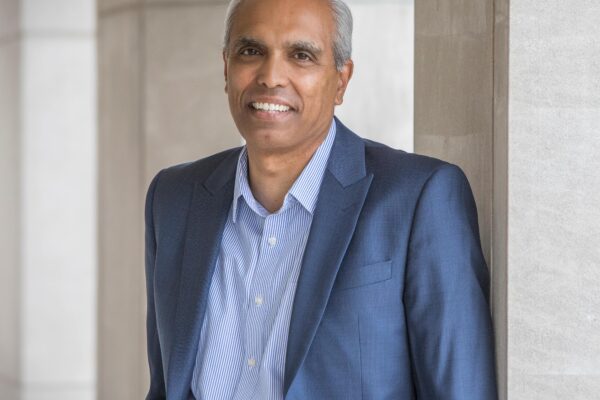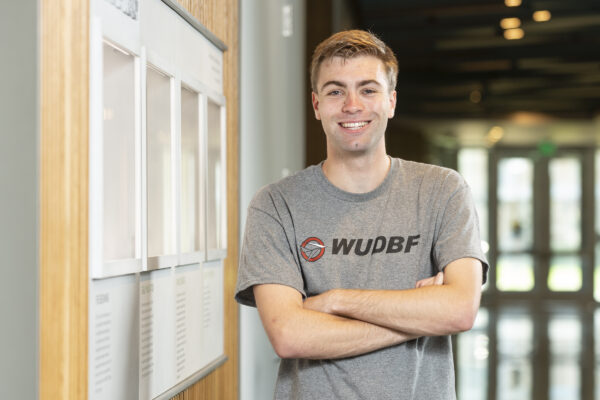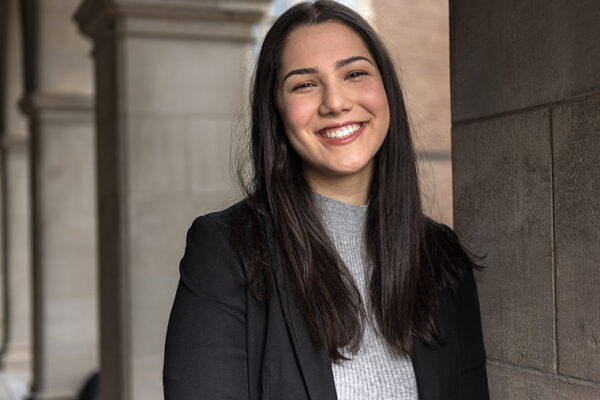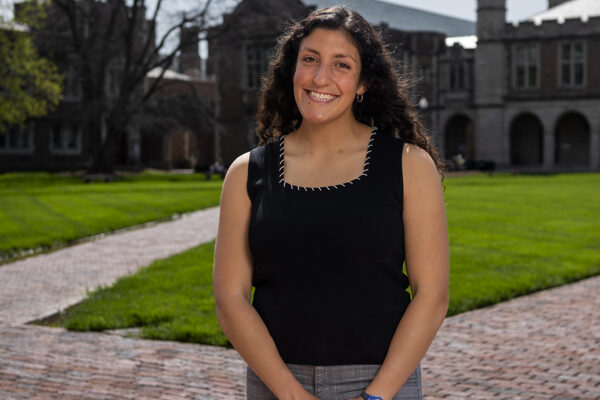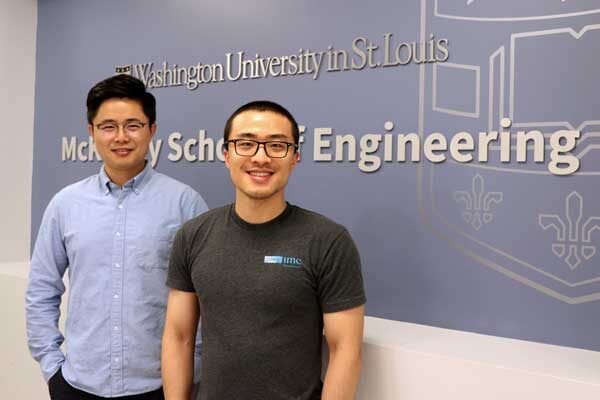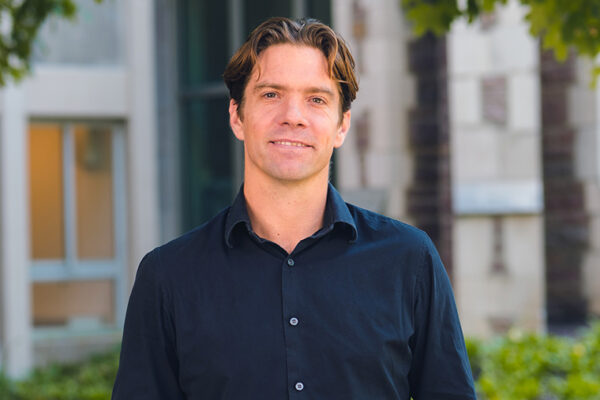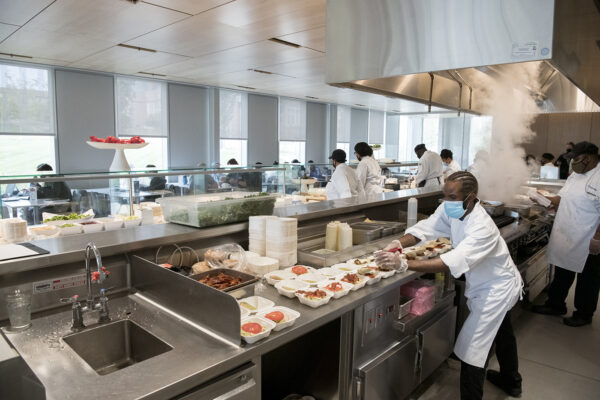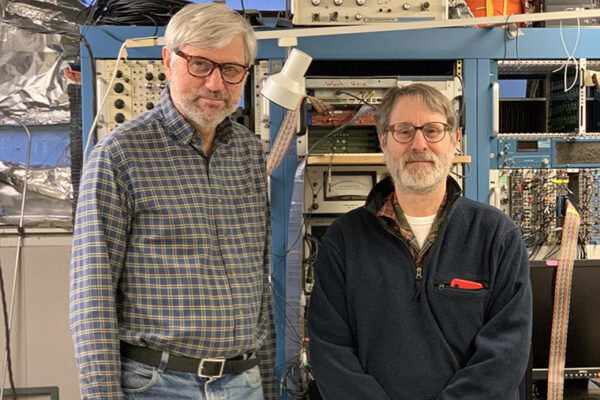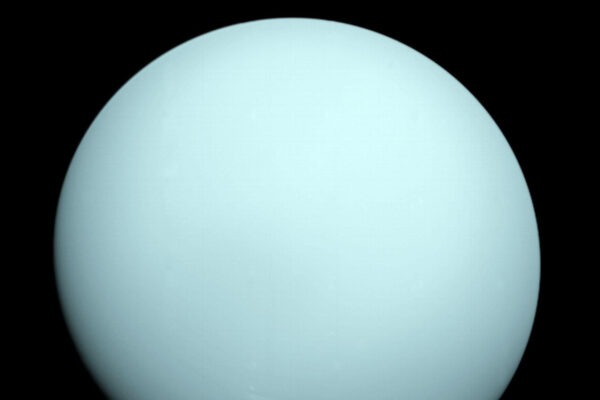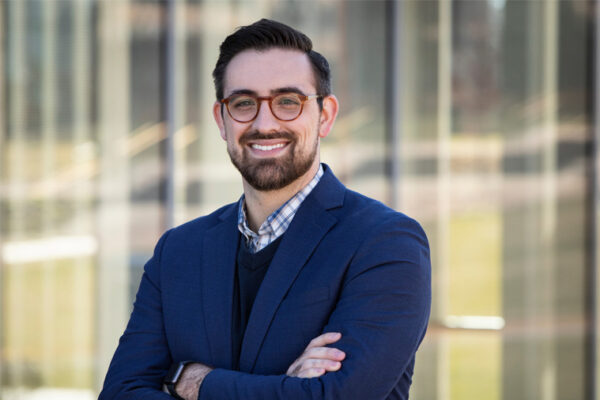Pappu lab untangles more IDR secrets
Rohit Pappu’s latest look at intrinsically disordered regions of proteins explains why some sequences behave in different ways. His paper was published in the Proceedings of the National Academy of Sciences.
Class Acts: Miles Petersen
Miles Petersen always knew he wanted to work in the aviation field. He has been building airplanes with Design Build Fly. Soon, he’ll be building them with aerospace giant Boeing Co.
Class Acts: Gabriella Smith
Gabriella Smith, a senior biology major in Arts & Sciences at Washington University in St. Louis, is a champion for access to mental health services. She hopes to combine her passion for working with children with her leadership skills to pursue a career in medicine that incorporates patient care, research and advocacy.
Class Acts: Elizabeth Saliba
McKelvey School of Engineering senior Elizabeth Saliba is committed to designing a more sustainable future. During her time at Washington University, she has helped design modular classroom prototypes for an elementary school south of St. Louis and a net-zero energy occupational therapy clinic to be built on Delmar Boulevard.
Doctoral engineering students win poster awards
Two students from the McKelvey School of Engineering were honored at a joint conference of the American Water Works Association and the Missouri Water Environment Association.
Neon ice shows promise as new qubit platform
Kater Murch, professor of physics in Arts & Sciences, helped an Argonne Laboratory team with their effort to create a new form of qubit, reported in a recent Nature paper. This system shows great promise to be developed into ideal building blocks for future quantum computers.
Going green: Five ways Dining Services is making your lunch more sustainable
From reducing waste to cooking with local produce, Dining Services at Washington University in St. Louis is striving to make its offerings and operations more sustainable. This Earth Day, Andrew Watling, associate director of dining operations, shares five ways campus kitchens are making a difference.
Novel particle detector used to study alternate path to carbon creation in stars
A team that includes Lee Sobotka and Robert Charity, both in Arts & Sciences, concluded that the role that neutrons play in the creation of carbon, considered the definitive building block of life, is much smaller than previously thought.
WashU researchers help identify national priorities for planetary science
William B. McKinnon and Paul Byrne, both in Arts & Sciences at Washington University, played important roles in developing a report from the National Academies of Sciences, Engineering, and Medicine. It identifies scientific priorities and funding recommendations to maximize the advancement of planetary science in the next decade.
Bersi wins American Heart Association Career Development Award
Matthew Bersi, assistant professor at the McKelvey School of Engineering, will use tools from engineering and biology to investigate blood vessel stiffening from high blood pressure with a three-year $231,000 Career Development Award from the American Heart Association.
Older Stories
